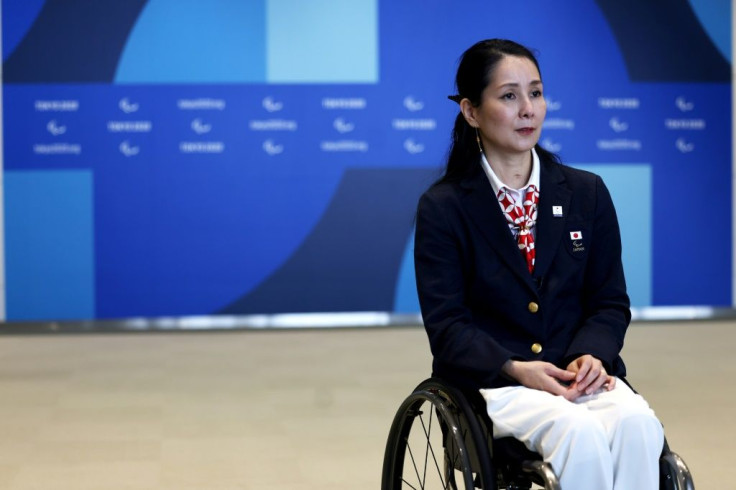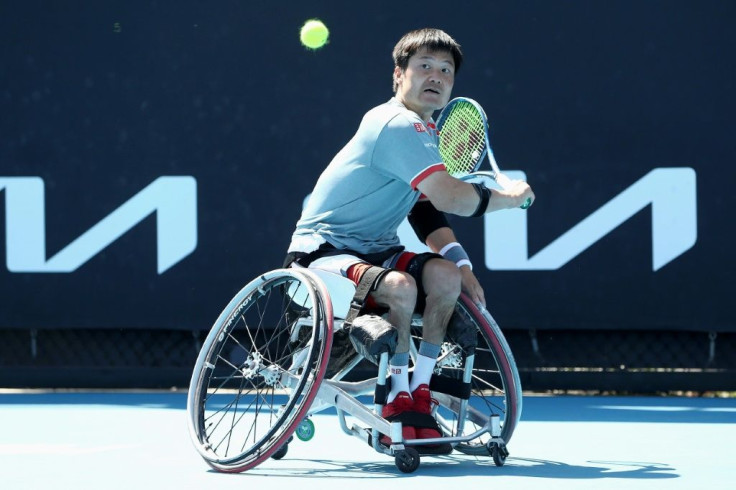Record Japan Paralympic Team Going For More Than Gold
Japan is sending a record number of athletes to the Paralympics aiming not only for gold medals but also to build a more inclusive society, according to top team official Miki Matheson.
A gold medallist herself at the 1998 Winter Paralympics in Nagano, Matheson serves as one of three deputy chiefs of the Japan team and has high hopes for the Tokyo Games.
"The success of the Paralympics is not just whether athletes hit the mark or win a lot of medals," the sportswoman told AFP in an interview.
"The Paralympics won't succeed if we can't feel that (people with disabilities) can go out more comfortably and that people around them can change their way of thinking because of the Paralympics," she added.
The top sporting event for athletes with disabilities opens on Tuesday after a year-long pandemic delay.
But with virus cases hitting fresh records in Japan, the health situation is weighing on organisers and participants alike.

During the Tokyo Olympics, Japan won a record 27 golds, which the nation's Olympic Committee says helped build public support for the Games despite the pandemic.
But Matheson said the Paralympics has a mission that goes beyond sport, and that Japan still has some way to go on making society inclusive.
Matheson, who won three gold medals and one silver in ice sledge speed racing in Nagano, was left paraplegic after a car accident when she was a university student.
She had practised judo before the accident, but turned her attention to para sports after her injury.
The 48-year-old is now based in Canada with her family, but is living in her hometown Tokyo temporarily while working with the team.
Despite efforts by Japan since winning the Paralympic host bid to improve disabled access and inclusion, Matheson said there were stark differences with life in Canada.

"I'm often treated as a disabled person when I'm back in Japan," said Matheson, who uses a wheelchair.
"In Canada, I live without noticing my disability at all."
She attributes this in part to a lack of opportunities for disabled and non-disabled people to work and live together in Japan.
"I think the Paralympics is just one springboard, but it can play a major role" in removing barriers, she said.
Matheson, who is also a member of the Japan Paralympic Committee, wants the Games to be more than a one-time boost.
"What we truly have to do is to continue this momentum," she said.
"The end of the closing ceremony can't be the end of it."
Japan's Paralympic team will have 254 athletes -- the largest ever fielded by the country -- and will be captained by wheelchair tennis legend Shingo Kunieda.
Athletes will face challenging conditions, with strict virus rules requiring daily testing and a ban on going anywhere except their accommodation, training sites and venues.
There will be no cheering crowds, with almost all spectators barred from events as Japan's nationwide new infections topped 25,000 in recent days.
Some Paralympians face additional risk because underlying health conditions make them more vulnerable to severe illness with Covid-19, or they work in close proximity to assistants and can't keep socially distant from them.
But Matheson said "for Paralympians, facing adverse challenges and pursuing what is possible for them is nothing special.
"Although conditions are tough in the pandemic, it means a lot for them to see what they can do and shine."
© Copyright AFP 2024. All rights reserved.





















